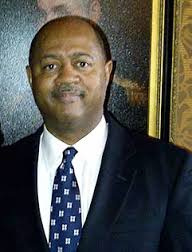
He was right.
My friend was not condoning the shootings — and cold-blooded murders — of the Dallas police officers, but he was echoing years of deep frustration among Black Americans who have watched helplessly as one by one, young Black men are dying on our nation’s streets during questionable confrontations with white police officers.
While many believe there is an ongoing war against Black men across our nation — and I agree — the racial powder keg that has been smoldering for so long finally erupted in Dallas last week. It was the deadliest single day for law enforcement officers since the Sept. 11, 2001 terrorist attacks.
President Barack Obama wisely cut short his European trip and returned to Washington, D.C. Sunday night. The president described the police shootings as “a vicious, calculated and despicable attack on law enforcement.”
The president plans to travel to Dallas this week, and, as the White House noted, Obama will spend this week supporting police officers while addressing “persistent racial disparities” in the criminal justice system.
In this climate of racial hatred and tense relations between police and the Black community, America, more than ever, needs Obama’s steady and measured voice for peace and healing.
Johnson, according to police, set out to intentionally kill white people, especially white police, in retaliation for two recent police incidents where Black men were shot to death– Alton Sterling was shot and killed by police in Baton Rouge, Louisiana, last week, and a day later, Philando Castile was shot and killed by police in suburban St. Paul, Minnesota while sitting in a car in next to his girlfriend.
Sterling was being pinned to the ground when he was shot and Castile, who told the policeman he was legally armed, was reaching for his identification when an officer blew a hole in his right arm. Castile bled to death while his girlfriend’s four-year-old daughter watched from the backseat of the car.
Dallas police shooter Micah Johnson was filled with hate, consumed with rage and likely mentally ill. Why was this 25-year-old black man so enraged? We may never know Johnson’s total state of mind, but we do know he was angry over the recent police shootings.
I don’t condone his actions. I deplore violence, and Johnson, pure and simple, is a murderer. His actions were nothing short of evil. He died instantly after police detonated a robot bomb to kill him after three hours of negotiations broke down.
“We’re convinced that this suspect had other plans and thought that what he was doing was righteous and believed that he was going to target law enforcement — make us pay for what he sees as law enforcement’s efforts to punish people of color,” Dallas Police Chief David Brown, who is Black, told CNN.
Johnson’s hateful attack should serve as a national wake-up call: If the collective brain trust of law enforcement doesn’t begin to seriously address the quick-on-the-trigger cops who are shooting Black men with impunity, racial peace in our republic will remain elusive.
The mandatory “sensitivity training” courses that police departments are conducting are clearly not working for all police officers.
“We are heartbroken,” Brown said during a news conference Friday. “There are no words to describe the atrocity that occurred to our city.”
I’m heartbroken, too. I feel profound sadness for the families of Sterling and Castile — just as I feel grief for the families of the five Dallas police officers who died senselessly in the line of duty.
Attorney General Loretta E. Lynch said Friday that federal officials were on the scene and working with local law enforcement to help investigate the attack.
“This has been a week of profound grief and heartbreak and loss,” Lynch said. “After the events of this week, Americans across our country are feeling a sense of helplessness, uncertainty and fear … but the answer must not be violence.”
I agree with Lynch — we can’t respond to violence with violence. But we’re dealing with a crisis of conscience in law enforcement culture where some — not all — police officers have a total disregard for Black life.
We are living in perilous times — a racially polarized nation — and there is no quick fix when managing police and the Black community.
In the difficult and uncertain days to follow, America will witness seven gut-wrenching funerals on the national stage – Sterling’s and Castile’s, as well as the five Dallas police officers.
We should all mourn the dead and pray for a time when police are no longer targets and when Black men are no longer dying from police bullets after being pulled over for broken tail lights.
What do you think?


Be the first to comment